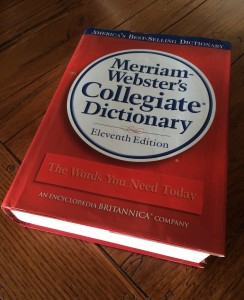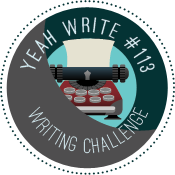My daughter idolizes you, Donald Trump. You’re the star of her comics, and she does a killer impression of you. You’ve infiltrated her ten-year-old psyche. You’re rich, and she has a thing for money. You’re powerful, and she craves power. Plus, you’re funny, and she has a great sense of humor.
Not to disappoint you, Mr. Trump, but Hillary has my vote. Still, I pay attention to my kids, so my daughter’s infatuation with you has given me pause. I’ll admit it, I’ve given your candidacy some consideration.
Every time my daughter tells her brothers to DEAL with it, I think of you.
You’re scrappy, Mr. Trump. You started out small, with only a $1M investment from your father. Everyone deserves an investment, if not in money then in time and attention. I hope my kids make the most of my investment in them, same as you. You’ve worked your way up, worked tirelessly to put your mark on the world.
My daughter knows exactly where to find your tower on the Chicago skyline.
I hear you’ve got a concealed carry permit, Mr. Trump, and I like knowing that you want to defend yourself. Like I teach my kids, you’ve got all the tools you need within yourself.
Good, honest people should feel safe inside and out.
I like how much you want to protect us Americans, Mr. Trump. When you say you want to build a great wall on the Mexican border, I know how much you want to keep us safe. Trust me, I wish I could put a layer of cement between my kids and the rest of the world. Sometimes I even want to protect them from one another.
But one thing I’ve learned is that once you start putting up walls, parts of you die.
I know you care about the world, Mr. Trump. I’ve been to Vegas, I’ve seen what wonders you’re capable of producing with a bit of money and raw materials. And I know you’ve got to tear down the old before you can build the new. So when you suggest bombing the hell out of ISIS, part of me gets where you’re coming from, Mr. Trump.
Like I tell my kids, when you’re mad it feels really good to punch someone, anyone. But it’s funny, when you hurt someone else, you’re always hurting yourself, too.
When you suggest deporting Muslims from the U.S., Mr. Trump, I think you’re just scared. Everyone has their fears, but be careful, Mr. Trump. Fear can make you reductive, and even worse, reactive. I’m not proud to admit the relief I felt when a bully was removed from my daughter’s class a few years ago, never mind that the bully was just one child in a class of twenty, acting out, making a desperate plea for help. Never mind that all children act out at some time or another.
It’s simpler to shut down in the face of adversity than to face our fears head-on.
I like how you want to invest in mental healthcare for veterans, to treat the invisible wounds of war. It’s introspective of you, Mr. Trump. Everyone has those subconscious wounds, you know. I know I do. I often wonder what scars my kids will bear by the time they escape their childhoods, what damage I’m inflicting on them, or they are, to each other.
Mr. Trump, I see how you want to send all kinds of trouble packing, to lock it up somewhere so we Americans can find the solitude to consider the best course of action to ensure a safe future for ourselves. Trouble is, Mr. Trump, solitude is a luxury that even most Americans can’t afford, and silence is virtually unattainable these days. Trust me, I know what I’m talking about with three kids at home.
If you can manage to calm your thoughts though, you’ll find the quietest place on Earth right inside your own head. It doesn’t matter what’s raging outside.
I believe you really want to be a nice guy, Mr. Trump, and I have an idea for you, a gentle suggestion. Take your own advice: Deal with it. In fact, let’s all try it, regardless of race, orientation, or belief. Deal, as in cope, rather than confront or bargain. Be still. Look inward, be honest. Acknowledge your emotions. It’s difficult to weather the storm, I know.
You’ll probably find that you remember things that you haven’t thought of in years. You’ll recall what your life was like before you became a success. You’ll remember hurts, fears, and doubts that you’ll probably wish had remained buried. But it’s never all bad: You’ll also recall loves, and joys, all the small things that have lit you up inside over the years. And that’s when you’ll know what you’re made of.
It’s hard to admit that we really are all made of the same stuff.
Like I tell my kids, eventually the storm will pass. Your emotions will settle down, and you’ll be able to build something new from all the rubble.




